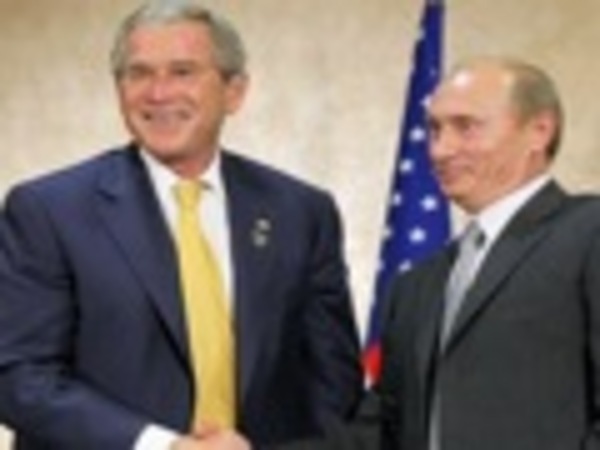 KASPAROV A OBAMA: NON SOTTOVALUTARE MOSCA KASPAROV A OBAMA: NON SOTTOVALUTARE MOSCA
L’approccio cooperativo che il candidato democratico propone in alternativa fa tuttavia pensare che non si possa, allo stesso tempo, cooperare sul piano economico e nucleare e far pressione per la democrazia e i diritti umani
(pagina 2) ... nt around the world. Not only did Truman save West Berlin; South Korea, Taiwan and Western Europe also have much to thank him for. By contrast, in their July 9 op-ed in the Los Angeles Times, Obama advisers Madeleine Albright and William Perry, secretaries of state and defense under Bill Clinton, criticized Sen. McCain's proposal to respond to major powers' human-rights abuses with more than lip service. Mr. Obama also asked if the West would stand up for "the human rights of the dissident in Burma, the blogger in Iran, or the voter in Zimbabwe." Commendable, but what about the political prisoner in China and the recently convicted blogger in Russia? Zimbabwe's Robert Mugabe and Russia's Dmitri Medvedev both came to power in blatantly fraudulent elections. The hypocrisy of condemning one while embracing the other destroys American and European credibility, and undermines any attempt at global leadership. Those of us living behind the Iron Curtain at the time were grateful Ronald Reagan did not go to Berlin in 1987 to denounce the lack of freedom in, say, Angola. In short, the candidate of change sounds like he would perpetuate the destructive double standards of the current administration. Meanwhile, the supposedly hidebound Mr. McCain is imaginative enough to suggest that if something is broken you should try to fix it. Giving Russia and China a free pass on human rights to keep them "at the table" has helped lead to more arms and nuclear aid to Iran, a nuclear North Korea, and interference from both nations in solving the tragedies in Darfur and Zimbabwe. Would all of this have occurred had the U.S. and Europe threatened meaningful reprisals? At least Mr. McCain wants to find out. Reagan's Berlin speech is remembered for his command: "Mr. Gorbachev, tear down this wall!" But he also made a critical point about negotiating from strength, a point Mr. Obama seems to be missing. Reagan knew that if the U.S. backed down on the Strategic Defense Initiative, his speech would just be pretty words the Soviets would ignore. Reagan avoided the mistake John F. Kennedy made when he met with Nikita Khrushchev in 1961. After the Bay of Pigs disaster, Kennedy was weak in Khrushchev's eyes and keen to make a deal, and the Soviet premier bullied him mercilessly in Vienna. The Berlin Wall and the Cuban Missile Crisis were soon to follow. Today, instead of communists there are deal-making capitalists and nationalists running the Kremlin and China's National People's Congress. They, and blowhards like Hugo Chávez, hardly represent the existential threats faced by Truman, Kennedy and Reagan. Yet Mr. Obama still is reticent to confront them, saying in Berlin that "we must reject the Cold War mindset of the past and resolve to work with Russia when we can, to stand up for our values when we must." But the Cold War ended and democracy became the global standard not because Western leaders merely defended their values, but because they projected them aggressively. On Sept. 11, 150 years ago, another Illinois politician to run for president, Abraham Lincoln, said: "Our defense is in the preservation of the spirit which prizes liberty as the heritage of all men, in all lands, everywhere." Not where it's convenient. Not in countries lacking large energy reserves. Everywhere, Mr. Obama, everywhere. Mr. Kasparov, leader of The Other Russia coalition, is a contributing editor
<< pagina precedente
|